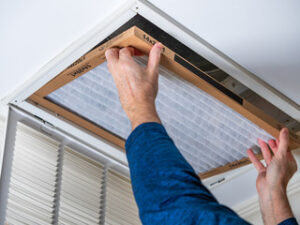As a commercial HVAC contractor, you know that projects can last for weeks or months. The challenge of managing labor, supplies, and customer relationships is no small matter. Fortunately, there are solutions. These operational software programs can help you run your field team more efficiently, streamline your office tasks, and boost your bottom line. Here are some of the benefits of Commercial HVAC. Commercial HVAC systems are designed to be more energy efficient than ever.
One of the most common issues with commercial HVAC systems is refrigerant leaks. These leaks can make your AC system work harder than necessary and lead to oil on service ports and valves. If these leaks are left unchecked, they can damage your commercial HVAC system and result in other serious problems. This issue can be a costly and disruptive one. Fortunately, it’s simple to solve with preventative maintenance. To get your commercial HVAC system working efficiently, follow these steps.
Commercial HVAC systems can be divided into two types. Simple systems use direct expansion to heat or cool air directly, while complex systems require multiple HVAC components. Simple systems are designed to be less expensive than complex systems and can be built with a single boiler and control unit. They use direct control units within zones for heating and cooling. A commercial HVAC system that is maintained properly will save you money and reduce energy bills. A properly installed and well-maintained system is an engineering marvel.
Residential HVAC systems can be large and noisy, and commercial systems are typically installed on the rooftop of the building. This method of installation reduces noise pollution while reducing the amount of space needed for the units inside the building. It’s also much easier to make repairs, and service technicians don’t disturb that inside. Another advantage of commercial HVAC systems is that they’re usually modular, allowing you to add units whenever you need them and not have to replace them all at once.
Multi-split systems utilize a combination of indoor and outdoor units. These systems have the advantage of being more efficient than centralized heating systems. They can be programmed to operate according to weather and load and can also save energy. They can be used to control multiple areas and can reduce energy bills significantly. You can also choose a system that’s designed for small buildings and save money while maintaining a comfortable temperature. However, a commercial HVAC system is a complex array of packaged units.
Split HVAC systems are the cheapest and most common type of commercial HVAC system. They allow for individual temperature control. They’re perfect for offices with server rooms and are best for smaller buildings. They require ductwork to circulate the air but require outdoor units. Single split systems are less expensive than central systems, but you’ll have to install an outdoor unit for each area. And, if your business grows and you need more cooling capacity, you can add more indoor units at a one-to-one ratio.
Multi-split systems are a good choice for smaller businesses and cost less than single-split systems. They’re usually used in offices, shops, and restaurants. Commercial HVAC is the hottest sector of the HVAC industry, and you should be able to find work in this field. However, you can boost your hourly pay by taking advantage of optional certifications. It is important to remember that commercial HVAC systems are often larger and more complex than residential ones, and the needs of one large commercial property will be quite different from another small property.
Unlike residential HVAC systems, commercial HVAC systems are designed for larger spaces. Understanding these systems can help you select the right one for your commercial needs. For example, a heat pump uses heat from the outdoor air and sends it indoors through the heat exchanger. Then, the air is heated before dissemination through the ductwork. This makes the system energy-efficient. If you are looking to buy a commercial HVAC system, you should consider a high-quality remanufactured unit.
If you’re looking for commercial HVAC services, it’s important to consider your ductwork. Ductwork transports heated and cooled air through a building and returns unconditioned air back into it. Dirty ductwork will reduce the efficiency of the air conditioning unit. Make sure to get your ducts cleaned regularly. A professional ductwork cleaner can evaluate the compatibility of your duct system. This is essential to ensure proper airflow in your building.